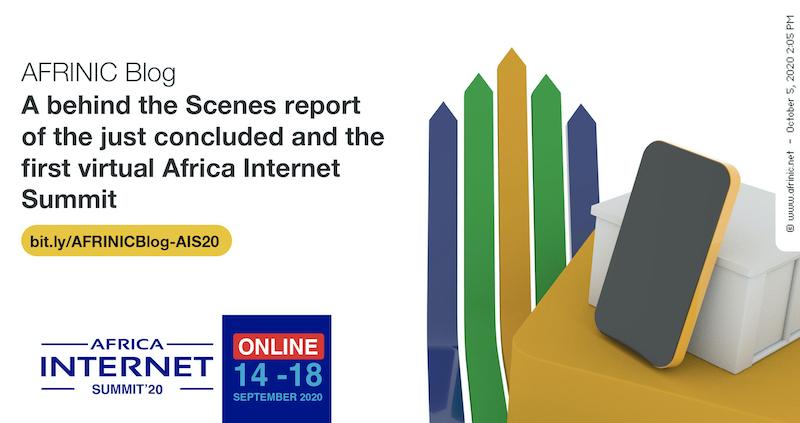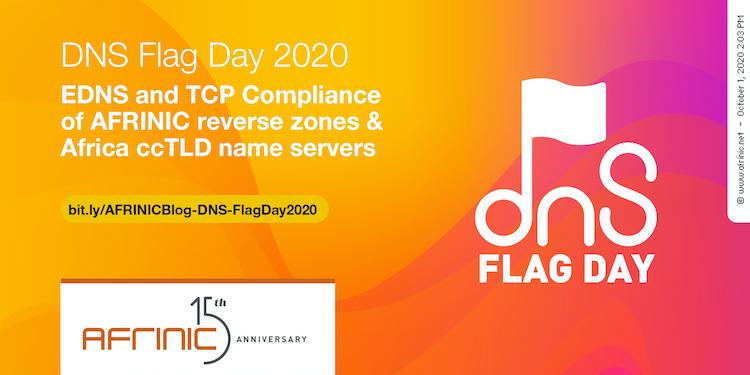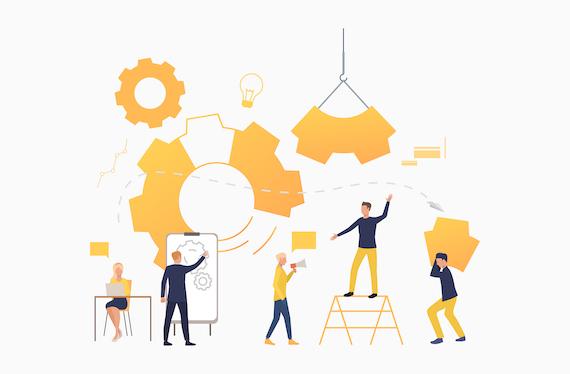On our Way to Building a Stable and Robust Internet in Africa
 AFRINIC has the mandate to collaborate with its stakeholders to ensure the sustainable growth of a stable, secure and robust Internet in Africa. In order to deliver on the above, it is vital that AFRINIC engages with the public, civil and technical sectors in dialogues and forums around the development of the Internet in Africa. Despite the global pandemic that has grounded the world, AFRINIC had to get creative in its efforts to engage with the different stakeholder groups and communities throughout 2020. In this blog, we would like to share a quick recap of the activities and meetings we have participated and collaborated in regionally since the beginning of the year.
AFRINIC has the mandate to collaborate with its stakeholders to ensure the sustainable growth of a stable, secure and robust Internet in Africa. In order to deliver on the above, it is vital that AFRINIC engages with the public, civil and technical sectors in dialogues and forums around the development of the Internet in Africa. Despite the global pandemic that has grounded the world, AFRINIC had to get creative in its efforts to engage with the different stakeholder groups and communities throughout 2020. In this blog, we would like to share a quick recap of the activities and meetings we have participated and collaborated in regionally since the beginning of the year.
“Covid 19 took us all by surprise and in these challenging times, like most organisations worldwide, we had to find means to respond to the current pandemic. This however did not deter our commitment to engage with our stakeholders in our service region. Our first virtual conference, AIS'20 Online, stood out and illustrated our effort in finding innovative ways to remain in touch with our partners and pursue our engagement activities throughout 2020 seamlessly.” says AFRINIC CEO Eddy Kayihura.
Governments and Intergovernmental Bodies
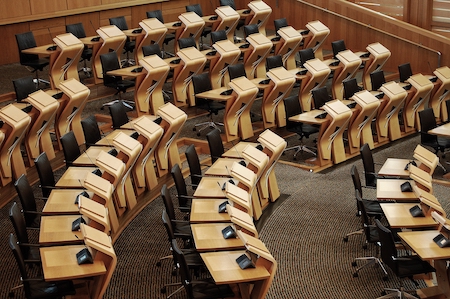 Maintaining good working relationships with African governments and intergovernmental bodies is key for guaranteeing that public policies are developed online with the technological developments our membership is leading on the continent.
Maintaining good working relationships with African governments and intergovernmental bodies is key for guaranteeing that public policies are developed online with the technological developments our membership is leading on the continent.
Within the framework of the African Union Agenda 2063, AFRINIC participated in a series of initiatives to collaborate with governments, ICT regulators and intergovernmental bodies on Internet development in Africa, including the Africa WSIS Meeting on ‘’COVID-19 and examining it as a Catalyst to achieving the WSIS Action Lines in the attainment of the Agenda 2030 UN Sustainable Development Goals and the African Union Agenda 2063”.
AFRINIC has also been exploring with the International Telecommunications Union (ITU) Telecommunication Development Bureau several areas of collaboration with respect to the objectives of the MoU that was signed between AFRINIC and the ITU in 2014 on IPv6 use and its developmental role for Africa. AFRINIC’s Head of Stakeholder Engagement, Mr Arthur Cardinal, met with Mrs Doreen Bogdan-Martin, ITU-D Director. They discussed several topics including the promotion of IPv6 Deployment, as a critical requirement for the deployment of Broadband and smart cities in developing countries.
Further to the collaboration between AFRINIC and the ITU-Africa Bureau, AFRINIC participated in the Cybersecurity Regional web dialogue for Africa Webinar organised on 23 September 2020 by the Bureau.
AFRINIC works with the African Union Commission (AUC) as an observer on the Ministerial Conference on Communications and ICT (MCIT).
The African Union Commission, the Internet Society, and the African Telecommunications Union hosted this first webinar in the ‘African Internet Resilience‘ series on the topic, ‘Internet Resilience in Africa in the context of COVID-19‘.
On 1 June 2020, AFRINIC participated in this webinar that assessed the growing impact of COVID-19 on livelihoods and work in Africa and examined the readiness of the continent’s Internet infrastructure to help mitigate those challenges. Mr Eddy Kayihura was a panellist in this event and gave a presentation on network traffic usage and trend in Africa during Covid-19.
AFRINIC also took part in the African Telecommunications Union’s (ATU) third Preparatory meeting for WTSA-20 that took place online from 27th - 30th July 2020.
We believe that the continued dialogue and the promotion of technical understanding with policymakers will work towards creating a synergy that can help bridge the gap between the technical and policy communities.
Collaboration with the Internet Society (ISOC)
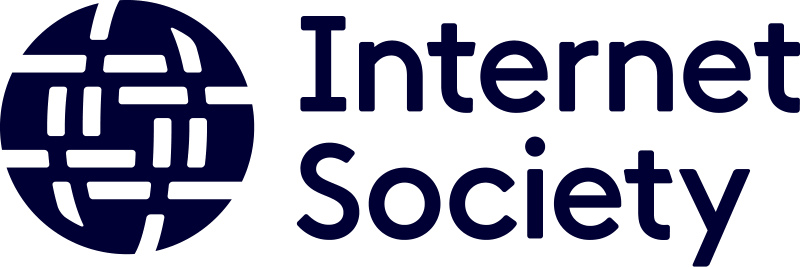 AFRINIC and ISOC have been partners for many years and have collaborated on numerous projects. The two organisations have in the past conducted training and workshops focused on enhancing the capacity of African experts on Internet infrastructure, promoted and advocated for the expansion of Internet access across Africa, built community networks and Internet Exchange Points.
AFRINIC and ISOC have been partners for many years and have collaborated on numerous projects. The two organisations have in the past conducted training and workshops focused on enhancing the capacity of African experts on Internet infrastructure, promoted and advocated for the expansion of Internet access across Africa, built community networks and Internet Exchange Points.
On 23 June AFRINIC participated in the webinar hosted by the Internet Society (ISOC) as they launched the "Anchoring the African Internet Ecosystem – Lessons from Kenya and Nigeria’s Internet Exchange Point Growth" Report.
On 24 July, the Internet Society (ISOC) and AFRINIC signed an MoU to cement their collaboration on the Africa Internet Measurement Project. The partnership agreement seeks to promote Internet access and connectivity in Africa. ISOC and AFRINIC have been working closely in the last few years to increase internet access and connectivity in the African continent. The two institutions have now concluded a joint agreement to work to promote research, capacity building around Internet Measurement, Routing Security, Internet Engineering Task Force-Africa (IETF-Africa,) and Internet exchange point. Read more on this collaboration here.
Regional Cooperation
 As the Regional Internet Registry for Africa, AFRINIC is keen on partnering with key stakeholders in the Northern, Eastern, Southern, Central, Western Africa and Indian Ocean regions, by sharing valuable recommendations on Africa's sustainable development through Internet technology usage.
As the Regional Internet Registry for Africa, AFRINIC is keen on partnering with key stakeholders in the Northern, Eastern, Southern, Central, Western Africa and Indian Ocean regions, by sharing valuable recommendations on Africa's sustainable development through Internet technology usage.
We highlight here our engagement activities with several organisations within our service region.
1) Cooperation in North Africa
AFRINIC was given an observer member status in the Arab Internet and Telecom Union - Arab Regional ISPs and DSPs Association (ARISPA), as both organisations look forward to joining forces to promote Internet development in the Arabic speaking countries in our service region predominantly in North Africa.
AFRINIC also took part in the GSR-20 Regional Regulatory Roundtable Discussion on Competition Policy and Analysis in a Digital Apps environment for the Arab and Africa Regions, on 20 August 2020.
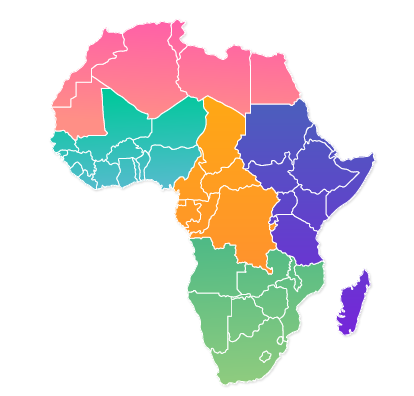
2) Cooperation in the East African region
In Kigali, Rwanda, Mr Kayihura met with Dr Ally Yahaya Simba, Executive Secretary of the East African Communications Organisation (EACO). The two discussed opportunities for cooperation between AFRINIC and EACO on matters of Internet development and IPv6 deployment in the Eastern Region.
AFRINIC’s Chief Executive Officer, Mr Eddy Kayihura also participated in the Ethiopian Internet Development Conference 2020 (EIDC) in Addis Ababa from 3-5 March 2020. Mr Kayihura highlighted AFRINIC's leading role in education and capacity building as well as IP infrastructure development and reinforcement throughout the African region in his keynote speech.
3) Collaboration in West Africa
The West Africa Internet Governance Forum (WAIGF) aimed to promote Internet Governance issues in West Africa through a multi-stakeholder process. As part of their efforts, they organised the West Africa School on Internet Governance (WASIG) where AFRINIC presented on ''The Internet Address System''.
AFRINIC also participated in the Benin School of Internet Governance 2020 from 7-9 September 2020, and made a presentation on the topic ' From the School of Internet Governance, All Online ".
The Nigeria Youth IGF was held on 23 September 2020 and saw Mr Abiade Dosomnu from AFRINIC present on the topic ''Cyber Security & Cyber Crime - Enabling a secure and sustainable internet for all''.
On 10 October Mr Eddy Kayihura gave a welcome address during the Ivory Coast - Citizen Dialogue on the Future of the Internet. AFRINIC's Mr Brice Abba in parallel conducted a session at Benin under the theme, Citizen Dialogue on the Future of the Internet
AFRINIC, in collaboration with Facebook and ISOC Cote D’Ivoire, organised a webinar on 28 May 2020 to address the issue of fake news and Facebook's approach to tackle fake news through Facebook's fact-checking programme. The speakers included: Mrs Balkissa Idé Siddo, The Public Policy Manager- Facebook and Mr Brice Abba, Community Development Manager- AFRINIC.
The Africa Internet Summit (AIS’20)
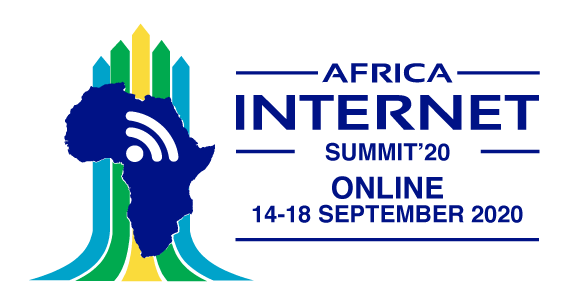 The African Network Information Centre (AFRINIC) in collaboration with the Africa Network Operators Group (AfNOG) have proudly concluded their first virtual conference (AIS’20). The event was originally planned to be held in Central Africa in the Democratic Republic of Congo, however, due to the COVID-19 pandemic, the event was held virtually with over 500 attendees. AIS is still very keen on going to Central Africa and DRC as soon as possible. Read more on how the meeting went and the valuable lessons learnt throughout the process of organising AIS'20 Online here.
The African Network Information Centre (AFRINIC) in collaboration with the Africa Network Operators Group (AfNOG) have proudly concluded their first virtual conference (AIS’20). The event was originally planned to be held in Central Africa in the Democratic Republic of Congo, however, due to the COVID-19 pandemic, the event was held virtually with over 500 attendees. AIS is still very keen on going to Central Africa and DRC as soon as possible. Read more on how the meeting went and the valuable lessons learnt throughout the process of organising AIS'20 Online here.
Other Online Events AFRINIC participated in

In the context of the International Girls in ICT Day 2020, AFRINIC in partnership with the World Wide Web Foundation organised a webinar on 23 April 2020 to discuss the empowerment of women in the tech world. The webinar themed "Expand Horizons for African Women: Change attitudes in tech leadership" opened the floor to discussions around the critical role of African women in the ICT sector.
Mr Kayihura made a presentation on the topic, ''The New Normal Digital as a competitive necessity'' during the Africa Tech Leaders Webinar Series, involving Tech and thought leaders across various sectors in Africa. He shared his perspective on the role and benefits of the Internet to African Businesses at different levels stressing the need to carry along those at the bottom of the pyramid to achieve real progress whilst also highlighting the importance of mitigating the risks primarily associated with cyber-attacks.
AFRINIC participated in the Africa Cyber Defense Forum 2020 virtual meeting held on 24 and 25 June 2020. This year’s theme was 'A More Secure World, More Business Activity, and More Jobs’. This forum engaged top-level government, Technology experts, business leaders, and other leaders of society to shape the continental, regional, and industry agendas in the African cyberspace. AFRINIC Chief Executive Officer, Mr Eddy Kayihura was a panellist on 'National Security, Cyberthreats and Governance' session, while Mr Brice Abba, the Community Development Manager at AFRINIC moderated the session on 'Building Cyber Resilience Post COVID-19'.Mr Phokeer made a presentation on "Building a resilient Internet in Africa” at LINX Presents on 15 October 2020.
In addition, AFRINIC signed MoUs with the Nigerian Communications Commission for IPv6 Deployment and Internet Measurement and a Cooperation MoU with the Smart Africa Secretariat. The two organisations will collaborate on the development of a Master Plan to promote Internet governance and broadband deployment on the African continent.
AFRINIC also provided support to regional organisations through their ICT initiatives across Africa and in 2020 AFRINIC sponsored the following events: ZANOG, I-week, Internet Society - Ethiopia Internet Development Conference 2020, the Kondoa Community Network and the South Sudan IGF.
Future Collaboration
AFRINIC is currently exploring avenues for growing collaboration with its membership and community. Accordingly, we invite partnering organisations interested in hosting and organising engagements projects and bringing these to their local communities to reach out to us at This email address is being protected from spambots. You need JavaScript enabled to view it.
Author: Arthur Cardinal
Head of Stakeholder Engagement
AFRINIC

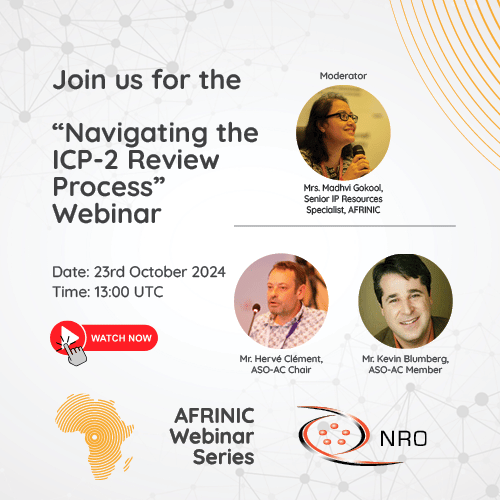


 AFRINIC has the mandate to collaborate with its stakeholders to ensure the sustainable growth of a stable, secure and robust Internet in Africa. In order to deliver on the above, it is vital that AFRINIC engages with the public, civil and technical sectors in dialogues and forums around the development of the Internet in Africa. Despite the global pandemic that has grounded the world, AFRINIC had to get creative in its efforts to engage with the different stakeholder groups and communities throughout 2020. In this blog, we would like to share a quick recap of the activities and meetings we have participated and collaborated in regionally since the beginning of the year.
AFRINIC has the mandate to collaborate with its stakeholders to ensure the sustainable growth of a stable, secure and robust Internet in Africa. In order to deliver on the above, it is vital that AFRINIC engages with the public, civil and technical sectors in dialogues and forums around the development of the Internet in Africa. Despite the global pandemic that has grounded the world, AFRINIC had to get creative in its efforts to engage with the different stakeholder groups and communities throughout 2020. In this blog, we would like to share a quick recap of the activities and meetings we have participated and collaborated in regionally since the beginning of the year.  Maintaining good working relationships with African governments and intergovernmental bodies is key for guaranteeing that public policies are developed online with the technological developments our membership is leading on the continent.
Maintaining good working relationships with African governments and intergovernmental bodies is key for guaranteeing that public policies are developed online with the technological developments our membership is leading on the continent. AFRINIC and ISOC have been partners for many years and have collaborated on numerous projects. The two organisations have in the past conducted training and workshops focused on enhancing the capacity of African experts on Internet infrastructure, promoted and advocated for the expansion of Internet access across Africa, built community networks and Internet Exchange Points.
AFRINIC and ISOC have been partners for many years and have collaborated on numerous projects. The two organisations have in the past conducted training and workshops focused on enhancing the capacity of African experts on Internet infrastructure, promoted and advocated for the expansion of Internet access across Africa, built community networks and Internet Exchange Points. As the Regional Internet Registry for Africa, AFRINIC is keen on partnering with key stakeholders in the Northern, Eastern, Southern, Central, Western Africa and Indian Ocean regions, by sharing valuable recommendations on Africa's sustainable development through Internet technology usage.
As the Regional Internet Registry for Africa, AFRINIC is keen on partnering with key stakeholders in the Northern, Eastern, Southern, Central, Western Africa and Indian Ocean regions, by sharing valuable recommendations on Africa's sustainable development through Internet technology usage.


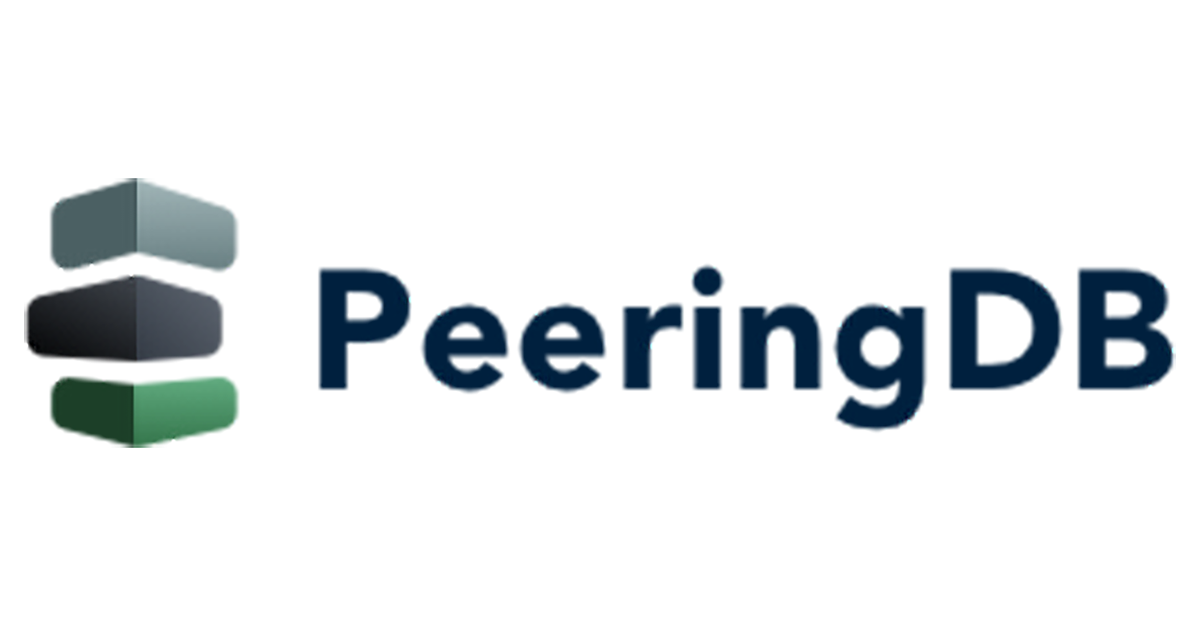

 Leo Vegoda is developing PeeringDB’s product roadmap. He was previously responsible for organizational planning and improvement in ICANN’s Office of the COO, and Internet Number Resources in the IANA department, as well as running Registration Services at the RIPE NCC.
Leo Vegoda is developing PeeringDB’s product roadmap. He was previously responsible for organizational planning and improvement in ICANN’s Office of the COO, and Internet Number Resources in the IANA department, as well as running Registration Services at the RIPE NCC.